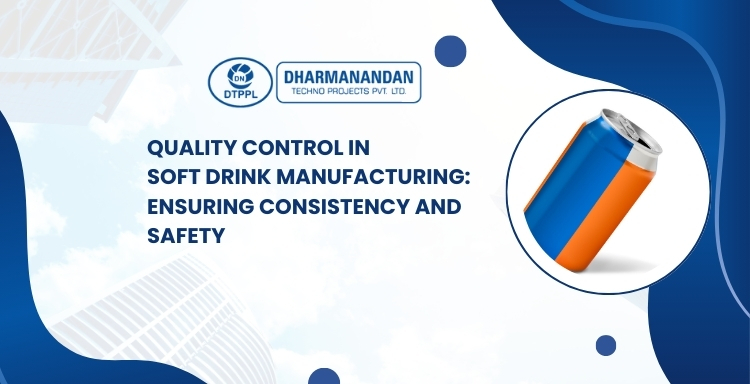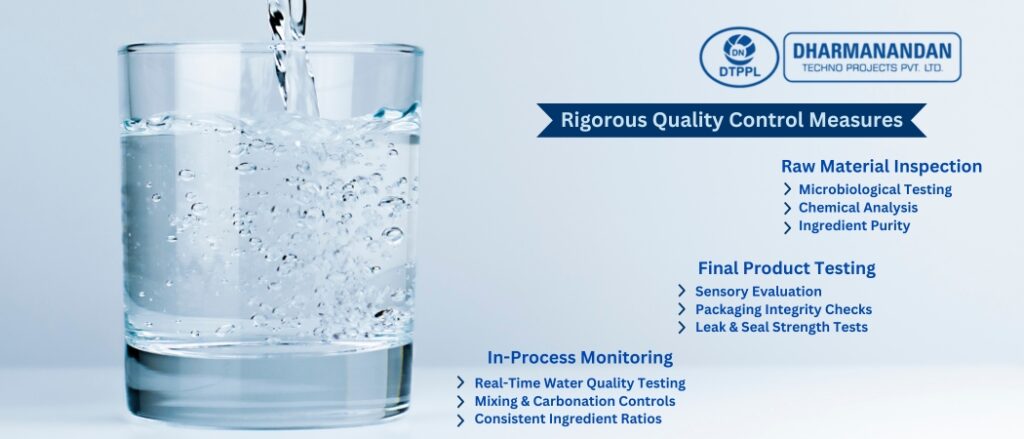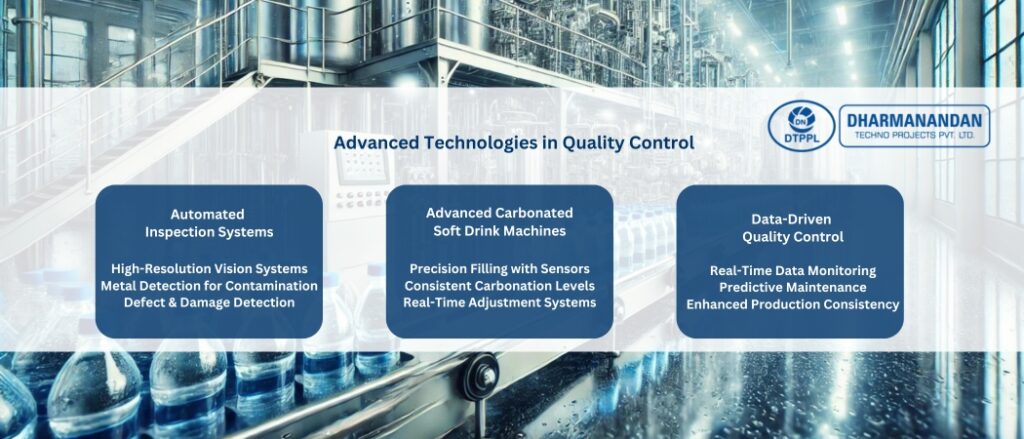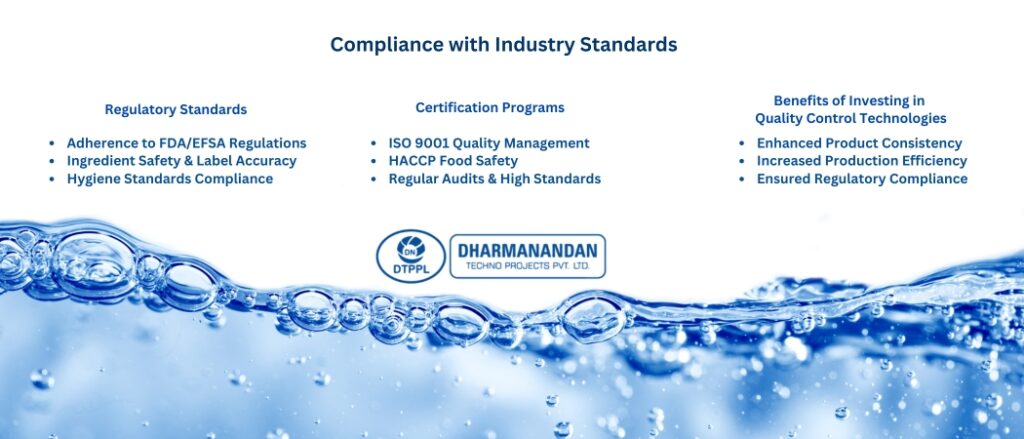
Table of Contents
Quality Control in Soft Drink Manufacturing: Ensuring Consistency and Safety
August 21, 2024
In the competitive landscape of the soft drink industry, maintaining product quality is crucial for consumer trust and regulatory compliance. Quality control in soft drink manufacturing involves a comprehensive set of measures and technologies designed to ensure product consistency, safety, and adherence to industry standards. This article delves into the key quality control practices and technologies employed in cold drink manufacturing plants, including advancements in carbonated soft drink machines and filling systems.
1. Rigorous Quality Control Measures
Quality control (QC) in soft drink manufacturing starts with stringent procedures that encompass every stage of production, from ingredient sourcing to final product packaging.
a. Raw Material Inspection
Before production begins, raw materials such as water, sweeteners, and flavorings undergo rigorous testing. This includes:
- Microbiological Testing: Ensuring that ingredients are free from harmful microorganisms that could compromise product safety.
- Chemical Analysis: Verifying the purity and concentration of ingredients to meet formulation specifications.
b. In-Process Monitoring
During production, real-time monitoring is critical for maintaining quality. Key aspects include:
- Water Quality Testing: For cold drink manufacturing plants, water quality is essential. Continuous monitoring of parameters such as pH, turbidity, and microbial content ensures that the water meets the required standards before it’s used in production.
- Mixing and Carbonation: Advanced sensors and control systems monitor the mixing and carbonation processes. This ensures that the correct ratios of ingredients are used and that carbonation levels are consistent across batches.
c. Final Product Testing
Once the soft drink is bottled or canned, it undergoes several tests to confirm its quality:
- Sensory Evaluation: Tasting panels assess the flavor, aroma, and appearance of the product to ensure it meets the brand’s standards.
- Packaging Integrity: Tests are conducted to check for leaks, seal strength, and overall packaging integrity. This prevents issues such as contamination and spoilage.

2. Advanced Technologies in Quality Control
Modern soft drink plants leverage a range of technologies to enhance quality control and ensure product consistency and safety.
a. Automated Inspection Systems
Automated inspection systems play a vital role in quality control, offering precise and efficient evaluations:
- Vision Systems: These systems use high-resolution cameras and image processing software to inspect bottles and cans for defects such as label misalignment, fill levels, and packaging damage.
- Metal Detectors: To prevent contamination, metal detectors scan products for any foreign metal particles that could pose a risk to consumers.
b. Advanced Carbonated Soft Drink Machines
Carbonated soft drink machines have evolved to include advanced features that improve quality control:
- Precision Filling Machines: Modern carbonated soft drink filling machines are equipped with sophisticated sensors that ensure accurate fill levels and minimize waste. These machines are calibrated to maintain consistent carbonation levels, essential for product taste and quality.
- Dynamic Adjustment Systems: Some machines offer real-time adjustments based on feedback from quality control systems, allowing for immediate corrections to production parameters.
c. Data-Driven Quality Control
Data analytics and digital technologies are transforming quality control practices:
- Real-Time Data Monitoring: Data collection systems track various production parameters in real-time, enabling quick response to any deviations from quality standards.
- Predictive Maintenance: Using historical data and predictive algorithms, maintenance needs can be anticipated and addressed before they impact production, ensuring consistent operation of equipment like soft drink filling machines.

3. Compliance with Industry Standards
Ensuring compliance with industry standards and regulations is a fundamental aspect of quality control in soft drink manufacturing.
a. Regulatory Standards
Soft drink manufacturers must adhere to regulations set by health and safety authorities, such as the FDA or EFSA. These regulations cover aspects like ingredient safety, labeling accuracy, and hygiene standards. Quality control systems are designed to ensure compliance with these regulations, avoiding costly penalties and ensuring consumer trust.
b. Certification Programs
Many soft drink plants seek certifications such as ISO 9001 for quality management or HACCP for food safety. These certifications require rigorous quality control processes and regular audits to maintain high standards.

4. Benefits of Investing in Quality Control Technologies
Investing in advanced quality control technologies and practices offers numerous benefits to soft drink manufacturers:
- Enhanced Product Consistency: Automated systems and precise machines ensure uniformity in product quality, enhancing consumer satisfaction and brand reputation.
- Increased Efficiency: Real-time monitoring and predictive maintenance reduce downtime and improve production efficiency.
- Regulatory Compliance: Adhering to industry standards and regulations minimizes legal risks and ensures product safety.
Conclusion
Quality control is an integral part of soft drink manufacturing, crucial for ensuring product consistency, safety, and regulatory compliance. By adopting advanced technologies and implementing rigorous QC measures, cold drink manufacturing plants can maintain high standards and meet consumer expectations. From precision carbonated soft drink machines to automated inspection systems, the evolution of quality control technologies is shaping the future of the soft drink industry, driving improvements in product quality and operational efficiency.
About Author

Director – Global Marketing and Sales
Mr. Bhavesh from Dharmanandan Techno Projects Pvt. Ltd. has played a pivotal role in elevating the DTPPL brand to the global stage, leveraging his exceptional expertise in marketing and communications. He is committed to helping clients achieve significant growth while strengthening their own brands. Dharmanandan Techno Projects Pvt. Ltd. is a leading manufacturer and supplier of water purification systems and turnkey solutions for mineral water plants. With years of experience in designing and delivering high-quality water treatment solutions, the company provides end-to-end services, including system design, installation, maintenance, and ongoing support. Specializing in scalable and customizable water plants, DTPPL has successfully served industries worldwide, ensuring clean and safe drinking water across diverse applications.




